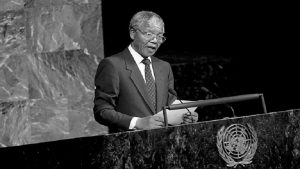The South African Reserve Bank (SARB) says the insufficient and unreliable electricity supply is a growing risk to financial stability in the country.
This came out of the SARB’s Financial Stability Review briefing this week.
SARB’s Head of Financial Stability Department, Dr Nicola Brink, says overall systematic risks have increased since the previous FSR last year.
Brink says these risks have had a negative impact on the financial sector’s resilience.
The Reserve Bank warns of risks to the country’s financial stability.
It says these risks, along with the threat of a grid failure due to repeated power cuts and persistently high inflation, have increased the systemic risks to the financial system.
SARB says rolling blackouts is a growing risk to the country’s financial stability
SARB says the FATF greylisting in February, is the most notable risk to the domestic financial sector.
The banking sector credit risk remains elevated as banks continue to extend credit at a faster pace than economic growth.
SARB’s Head of Financial Stability Development, Dr Nicola Brink says, “The rand depreciated by 8% since the previous FSR, while the basket of emerging market currencies appreciated by 3.5%. This underperformance of the rand was not only as a result of the greylisting, other contributing factors included load shedding and the weak economic growth that follows geo-political risks that contributed to large capital outflows.”
SARB says the longer the country stays on the greylist – the more lasting and severe the effects will be in the next assessment by FATF.
“Higher transaction costs, more scrutiny for South Africa’s financial payments and international payments in the national participation of financial institutions. Even higher country risk premiums which will increase the cost of funding in international markets even further. Continued reputational damage and capital outflows. There are also regional spillovers as South Africa is in many respects the link of some of our neighbouring countries to international markets.”
The economy has been hit by a host of negative factors this year, such as the intense rolling blackouts, adding billions of rand to the cost of doing business and household expenses.
The bank has also asserted the lingering recession fears and geopolitical tensions — which have also contributed to heightened systemic risk over the review period.






